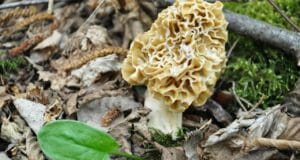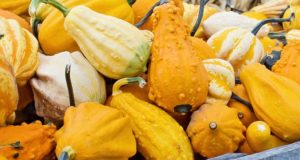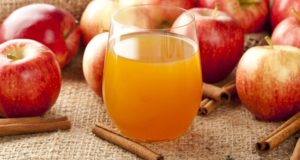 Certain foods once deemed harmful by nutritionists have been found to provide essential nutrients to the diet, according to recent studies.
Certain foods once deemed harmful by nutritionists have been found to provide essential nutrients to the diet, according to recent studies.
From butter to chocolate, several “bad” foods offer an array of health benefits – within certain limitations.
“What’s old is new again may be the simplest way to avoid whiplash when deciding what’s good to eat,” Elena Ferretti told Fox News. “Some foods that doctors were telling us to avoid just a few years ago are now being heartily embraced.”
Eight foods in particular are gaining a new reputation in the health world:
1. Butter
- The bad: Butter was once believed to cause an array of health problems, particularly heart attacks, said Tracey Black from Don’t Mess With Mama.
- The good: Loaded with vitamins A, E and K2, butter is now believed to have no negative impact on heart health. Margarine, which was created as a “safe” substitute for butter, has been shown to increase heart problems.
- Caution: Black suggested purchasing butter from grass-fed cows to increase health benefits.
2. Nuts
- The bad: Nutritionists once labeled both good and bad fats into the same category, Ferretti said, resulting in nuts being viewed as “fat and calorie torpedoes.”
- The good: Nuts actually decrease heart disease and diabetes, as well as provide resveratrol – an antioxidant, Ferretti said.
- Caution: Portion sizes remain key, said Nicci Micco from Eating Well, as nuts contain many calories.
Prepare now for surging food costs and empty grocery store shelves…
3. Red meat
- The bad – Brynn Mannino from Woman’s Day said that red meat contains saturated fats, which some nutritionists believe can contribute to heart problems.
- The good – Ferretti said that processed meat, rather than red meat, causes heart problems. Burgers, steaks and other types of red meat contain iron, which helps sustain energy levels and provides oxygen to blood, Mannino said. Ferretti also noted that beef provides other nutrients such as protein, zinc and vitamin B.
- Caution – Nutritionists encourage people to consume grass-fed beef, which is healthier, Ferretti said.
4. Salt
- The bad – In the past, salt has been likened to heart attacks, strokes and other serious medical problems, said Sally Fallon Morell from The Weston A. Price Foundation.
- The good – Morell said the human body needs the sodium and chloride ions from salt, which controls fluid volume, acid base levels and blood pressure, among other healthy bodily functions.
- Caution – Carrie Vitt from Deliciously Organic suggests for consumers to use unprocessed salt. Traditional table salt is not only heated and bleached but contains added ingredients, making it a processed food.
5. Eggs
- The bad – Because of their high levels of cholesterol, egg yolks were believed to contribute to heart disease, said Katherine Tallmadge from Live Science.
- The good – Recent studies reveal that eggs do not lead to heart problems – rather, whole eggs contain a variety of vitamins and minerals, Ferretti said.
- Caution – People who are battling heart problems should still avoid eggs, despite their added health benefits, Mannino said.
6. Potatoes
- The bad – Potatoes have been previously linked to insulin resistance, weight gain and Type 2 diabetes, among other problems, Tallmadge said.
- The good – Potatoes contain more potassium than bananas, Mannino said, as well as calcium, complex carbohydrates, vitamin C and fiber.
- Caution – Mannino suggested baking or broiling potatoes rather than frying them.
7. Coffee
- The bad – Coffee has been claimed to cause heart disease, anxiety and growth problems, Ferretti said.
- The good – Studies reveal that coffee potentially decreases the risk of dementia, diabetes and liver cancer, Micco said. Ferretti also said that coffee is believed to decrease suicide while making people smarter and more athletic.
- Caution – Women who are pregnant or nursing should not drink more than two cups a day, Micco said.
8. Chocolate
- The bad – With high amounts of fat and sugar, chocolate was previously labeled as an unhealthy indulgence, Micco said.
- The good – Chocolate has been found to contain flavonoids, healthy plant compounds also found in green tea and red wine, Ferretti said. In addition, chocolate is believed to lower the risk of strokes.
- Caution – Containing larger amounts of cacao, dark chocolate is considered by some nutritionists to be healthier than milk chocolate, Ferretti said.
Although several blacklisted foods are gaining a better nutritional reputation, Joanna Blythman from The Observer noted that the foods acting as the true culprits to poor nutritional health have been – and continue to be – largely ignored.
“The crucial phrase ‘avoid processed food’ appears nowhere in government nutritional guidelines, yet this is the most concise way to sum up in practical terms what is wholesome and healthy to eat,” Blythman said. “Until this awareness shapes dietetic advice, all government dietary guidance should come with a tobacco-style caution: Following this advice could seriously damage your health.”
Are there other foods you would add to this list? Let us know in the comments below.
Sign up for Off The Grid News’ weekly email and stay informed about the issues important to you
 Off The Grid News Better Ideas For Off The Grid Living
Off The Grid News Better Ideas For Off The Grid Living




